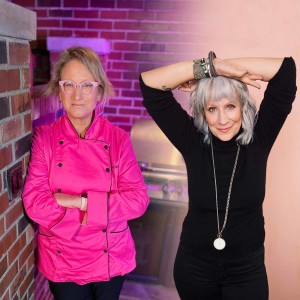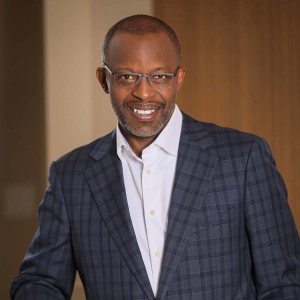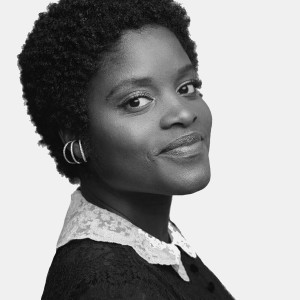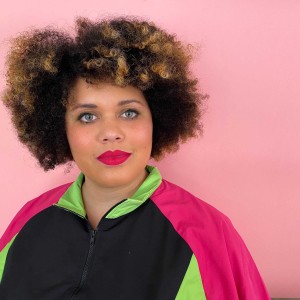The Fix
The Fix is a podcast that shares stories of women and men who are taking action and innovating to advance equality in the workplace and beyond.
The Fix is a podcast that shares stories of women and men who are taking action and innovating to advance equality in the workplace and beyond.
Episodes

Wednesday Aug 04, 2021
Why It’s Time To Ditch Quotas: Dr Ted Sun
Wednesday Aug 04, 2021
Wednesday Aug 04, 2021
Between 2015 and 2020 there was a 107% increase in the number of people employed with the head of diversity job title, according to LinkedIn data. This global hiring trend is set to continue, as more businesses appreciate the fundamental importance, including to the bottom line of having more diverse representation and inclusive cultures.
The top three fastest growing roles in this space, according to a LinkedIn report, are Director of Diversity, Diversity Officer, and Head of Diversity. 77% of all new D&I roles are either senior or director positions with 22.8% of these roles in leadership positions. And only one in five are entry level.
If the makeup of leadership teams begins to look different, doesn’t that mean the organization values difference? It’s incredibly common to see business leaders make external corporate commitments like this, which are often not hard quotas but rather “aspirational targets.” The aim is to achieve a trickle-down effect by hiring other female leaders; the hope is they will work to increase the representation of women, thereby magically transforming the culture. What could possibly go wrong?
On todays episode we are joined by Dr Ted Sun, author, speaker and expert in leadership, with two doctorate degrees, one in psychology and another in business. Dr Ted will unpack why diversity quotas are not the answer.

Wednesday Jul 28, 2021
The Friendship Gender Gap: Smiley Poswolsky
Wednesday Jul 28, 2021
Wednesday Jul 28, 2021
There is a loneliness epidemic, and it is affecting people from all ages. A recent study, conducted by the American Enterprise Institute, suggests that the proportion of people who can name six close friends has dropped from 55% to 27% since the 1990's and one in five single men say they do not have any close friends. According to the Guardian, while the pandemic has increased experiences of loneliness, people were struggling long before as a YouGov study carried out in 2019 suggested that 9 in 10 people between the age of 18-24 suffered from loneliness to some degree, and nearly half had difficulty making friends.
The challenges with making friends differ for men and women. The study entitled 'Gender Differences in Friendship Patterns' finds that women are more intimate and emotional in their same-sex friendships than men, women also tend to place a higher value on these friendships than men do. Women emphasized talking, emotional sharing, and discussing personal problems with their same-sex friends, and men showed an emphasis on sharing activities and doing things with their men friends. This is largely because men are socialized to not share their feelings. Being a man means going it alone. Results from this study suggest that men need to be socialized to express their emotions to form intimate and more beneficial same-sex friendships.
The friendship gender gap can have significant consequences as men face higher rates of isolation, loneliness, depression and even suicide. We all need connection in some way or another. On today's episode Adam Smiley Poswolsky author of Friendship in the Age of Loneliness, will join us to share how we can form meaningful friendships and create belonging at work and in life.

Wednesday Jul 21, 2021
Meet the Two Women Behind 25 Years of The Daily Show
Wednesday Jul 21, 2021
Wednesday Jul 21, 2021
Inequality is everywhere, even when it comes to comedy. What we are encouraged to find funny, is often aligned with what men find funny. This is the male gaze of comedy. We are socialized to believe that women are just not as funny as men. Women comedians receive far harsher criticisms than men. Women’s experiences, in general, are just not normalized in the way men's are. Comedy is a very difficult industry for women to break into.
Madeleine Smithberg and Lizz Winstead, creators of The Daily Show, celebrate the show's 25th year in July. During her time as the executive producer of the show, Madeline was responsible for casting Jon Stewart, Stephen Colbert, Steve Carell and Mo Rocca to name a few. She went on to earn a Peabody and Emmy award for her work. Lizz was not only co-created the show, but she was also a former head writer, drawing inspiration for the show from her early career in stand-up.
What makes these achievements even more remarkable is that comedy is a highly male dominated industry. Gender biases, like the belief that women are naturally less humorous than men, limit women's access to opportunities and pay. Gender stereotypes also place increased pressure on women to perform to a consistently high standard and avoid confirming negative beliefs about their capability.
What Madeleine and Lizz have clearly proved over the last 25 years, is that women don’t need to work the male gaze of comedy, in fact when women tell their own stories they provide greater opportunities to advance diversity in comedy more broadly. Women’s experiences are valuable, funny, and relatable. Not just to women, but to everyone.

Wednesday Jul 14, 2021
Dear White Friends : Melvin J. Gravely, II
Wednesday Jul 14, 2021
Wednesday Jul 14, 2021
My friend, I do not believe you are a racist.
My friend, I realize you do not need to care. You do not need to learn the cultural norms of Black people as a prerequisite for your career advancement and access to opportunity. You do not need to understand my fears and perceptions to keep yourself safe or to have social mobility. You do not need to consider my journey or think critically about how the construct of our nation was built nor how it’s supporting your success while it constrains mine. Your future is not predicated on me, how I feel, or what I think of you. You sit in a different position than I do. Yet, when you ask me what you can do as a first step, I emphatically say: just care enough to ask the question.
These are the words of Melvin J. Gravely, II from his forthcoming book about the racial divide in America, Dear White Friend: The Realities of Race, the Power of Relationships and Our Path to Equity. As a CEO and civic leader, Melvin speaks to his white colleagues, many of whom are uncomfortable talking about race, without judgement to offer a different perspective on race relations and equity.
In this episode Melvin joins us to share how we can engage in race issues and become empowered to be a part of the conversation and the solution.

Wednesday Jul 07, 2021
Your Permission Slip: Managing Mental Health at Work - Melissa Doman
Wednesday Jul 07, 2021
Wednesday Jul 07, 2021
Thanks to the pandemic our working lives seem to be in a constant state of change, with more uncertainty and new challenges arising almost on a daily basis. As lockdown eases, we will have to adopt new ways of working yet again.
Across the country people are being called to return to work and go back to normal but what is normal? The pandemic raised awareness of the importance of managing mental health at work, which includes talking about the mental and emotional challenges we face, or the stress of integrating work and home life or the difficulties of navigating the lack of social interaction in a virtual working world. The new normal includes workplaces, where physical, mental and emotional wellbeing of employees is the primary concern of managers. Long gone are the days when managers could sweep these issues under the rug. The post pandemic workplace is human.
In todays episode Melissa Doman, Author, Organizational Psychologist, Former Clinical Mental Health Therapist and Mental Health at Work Specialist will be joining us on the show to share why the pandemic has given us a permission slip to be human at work and how we can use this as an opportunity to improve our working lives.

Wednesday Jun 30, 2021
Diversity in Dance : Ingrid Silva
Wednesday Jun 30, 2021
Wednesday Jun 30, 2021
Earlier this year, dancers from around the world spoke out against racism in ballet, standing in solidarity with black French ballet dancer, Chloe Lopes Gomes. In an interview with the Guardian newspaper, Chloe reported that she was repeatedly told she didn’t fit in because of her black skin, that she was pressured to wear white skin makeup and in rehearsals was told her mistakes stood out because of her skin colour and that she couldn’t have the white veil her white colleagues would have, because she is black. In April, the BBC reported that Chloe had received €16,000 and had her contract renewed, in an out-of-court settlement with Berlin State Ballet which has also pledged to work to build a culture of openness. In a news interview with NBC, Chloe called for the ballet world to tackle elitism and the limited access for racial minorities both amongst dancers themselves and in the audience which is, also, overwhelmingly white.
Did you know that research has found that racial discrimination may actually be affecting the way genes are expressed, leading to increased levels of dangerous stress hormones? In an article in Dance Magazine, Dr Erlanger A Turner, PhD says that the stress of experiencing or witnessing racism and discrimination can take a psychological toll, linked to increased stress, lower self-esteem and risk for mental health difficulties like depression. He points out that for Black dancers, this toll may make it difficult to effectively practice their craft due to lack of energy or motivation.
In today's episode we are joined by Ingrid Silva, the famous ballet dancer with the Dance Theatre of Harlem Company and an advocate for diversity in the ballet world. Together we will be unpacking how to overcome racism in dance.

Wednesday Jun 23, 2021
Wednesday Jun 23, 2021
Feedback is part and parcel of working life. We give it, we receive it and mostly we hope that it is positive. Giving and receiving feedback is an art. Knowing how to respond or provide feedback is important because when done well feedback enables performance, engagement, sense of belonging and collaboration. In short knowing how to give feedback is a critical skill for surviving and thriving in workplaces today. But there is just one major problem, feedback is a gendered phenomenon, specifically the type of feedback men provide to women.
Not only do women get different types of feedback to that given to men like a number of professional women I know who have been given the feedback to “smile more” in contrast with another who was advised to be less friendly if she wanted to be taken seriously, but another study published in a Harvard Business Review article finds that managers tend to give female employees softened, less honest feedback on their performance.
In particular, the article states that women are systematically less likely to receive specific feedback tied to outcomes, both when they receive praise and when the feedback is developmental. In other words, men are offered a clearer picture of what they are doing well and more-specific guidance of what is needed to get to the next level.
In this weeks episode we are joined by Dr. Laura Hamill. She is an organizational psychologist and Chief Science Officer at the Limeade Institute. Laura unpacks how to be more effective at giving and receiving feedback, having difficult conversations and overcoming gender bias when it comes to the type of feedback we provide to women.

Wednesday Jun 16, 2021
Overcoming White Feminism. How to be an Anti Racist Ally : Sophie Williams
Wednesday Jun 16, 2021
Wednesday Jun 16, 2021
The barriers faced by racial and ethnic minority women are significantly more complex than those which face white women. In the 2010 journal article “Women and Women of Color in Leadership,” authors Janis Sanchez-Hucles and Donald Davis argue that women of color face the compounded effect of “gendered racism.” They cannot separate the multiple aspects of their identity. This means that women of color carry a heavier load because they experience both sexism and racism, as well as the interplay between these forms of inequality. Their research finds that African-American women experience greater negative stereotypes because of the combined impact of racism and sexism and are more likely to experience discrimination, prejudice, and unfair treatment when it comes to promotions, training, advancement, and support. This compounded disadvantage is associated with increased stress and lower self-esteem.
And, of course, women of color are not a uniform group, there is a variety of ethnic and racial backgrounds that individual women may identify with. This is further differentiated when you factor in age, sexual orientation, religion, and physical or mental ability. The more identities a person has and the more these differ from the stereotypical ideal worker standard, the more likely it is that they will experience the compounded effects of inequality.
In today's podcast we will be talking to Sophie Williams. Sophie is the author of 'Millennial Black' & 'Anti Racist Ally' . She is also a TED speaker and Racial Equity Consultant and Activist. In this episode we will share how we can move beyond performative allyship and become real success partners at work.


